#Chana Porter
Text
The Seep by Chana Porter
goodreads
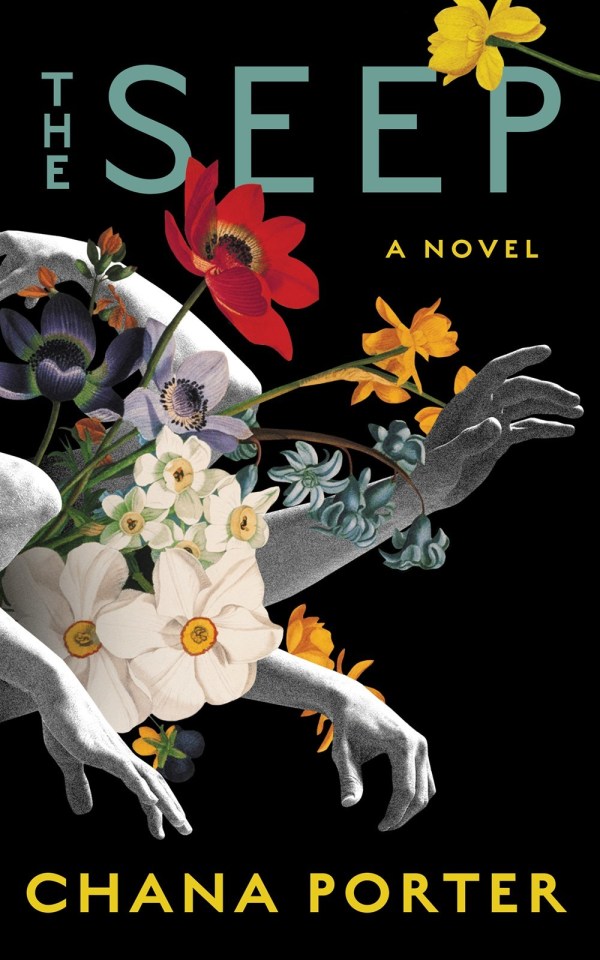
Trina Goldberg-Oneka is a trans woman whose life is irreversibly altered in the wake of a gentle—but nonetheless world-changing—invasion by an alien entity calling itself The Seep. Through The Seep, everything is connected. Capitalism falls, hierarchies and barriers are broken down; if something can be imagined, it is possible.
Trina and her wife, Deeba, live blissfully under The Seep’s utopian influence—until Deeba begins to imagine what it might be like to be reborn as a baby, which will give her the chance at an even better life. Using Seep-tech to make this dream a reality, Deeba moves on to a new existence, leaving Trina devastated.
Heartbroken and deep into an alcoholic binge, Trina chases after a young boy she encounters, embarking on an unexpected quest. In her attempt to save him from The Seep, she will confront not only one of its most avid devotees, but the terrifying void that Deeba has left behind.
Mod opinion: I've read and really enjoyed this book.
#the seep#chana porter#polls#trans lit#trans literature#trans books#lgbt lit#lgbt literature#lgbt books#sci fi#trans woman#own voices
15 notes
·
View notes
Text
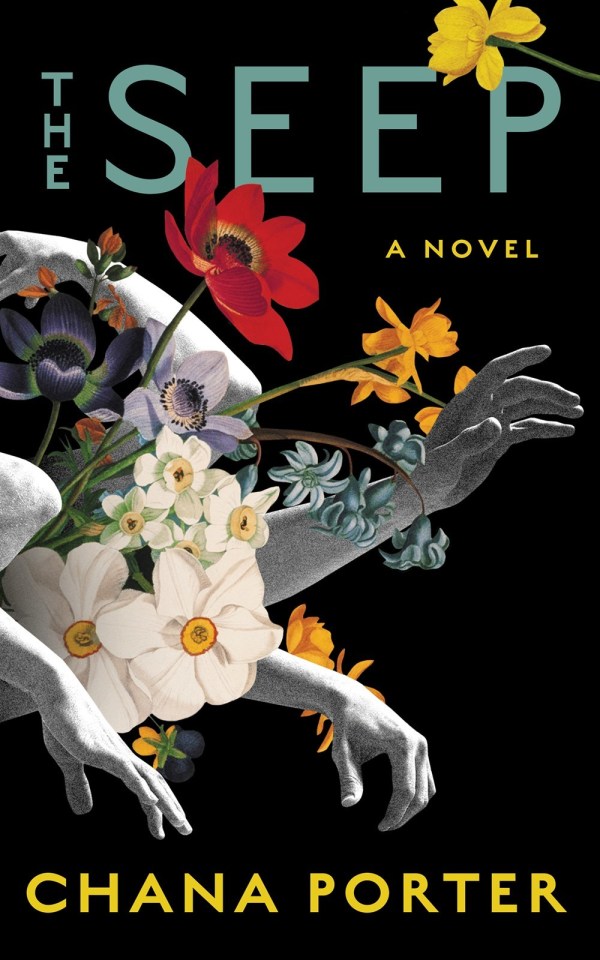
vote yes if you have finished the entire book.
vote no if you have not finished the entire book.
(faq · submit a book)
9 notes
·
View notes
Text
Book Review 30 - The Seep by Chana Porter

Okay, the last of my ‘read because they’re short and I had a goal to catch up to’ books. I, honestly, did not care for this one at all, on a few different levels. Didactic to the point of condescension, in service to a message I consider kind of repulsive. Extremely high concept setting with all manner of profound changes and revelations about the human condition that are just ignored or end up being hopelessly muddled and confused. All of it ending up as basically disposable set dressing to a breakup story that, I mean, I’m sure other people it it compelling? But just left me rolling my eyes. And the whole thing just so profoundly soaked through with a sort of woo-ish Californian-as-an-insult sensibility that puts my teeth on edge.
So the book begins with an alien invasion, the ‘Seep’ arriving on and saturating Earth, infesting 90% of humanity as well as everything else. The alien infection brings about a revolution in consciousness, making everyone infected acutely aware of the interconnections between all things and leading to an instantaneous abolition of capitalism, nationalism, and all forms of hierarchy larger than a local Home Owners Association (who can still evict you if you let your lawn get too overgrown, this is portrayed as self-evidently moral and reasonable). The Seep also allows for full bodily autonomy and the altering of one’s body at will, and also seems to have just abolished scarcity – in return, it mostly just wants to hitch along for the ride and feel human emotions, and make people happy. The plot itself is about a Trina, a woman in San Francisco spiralling into complete mental and emotional collapse after her wife decides she wants to try childhood again, and get remade into an infant with her mind wiped to be raised from birth by a couple in France (her wife/our protagonist taking this as something of a betrayal and refusing to be her mother). After falling into depression for a while, she’s told that if she doesn’t get with the yardwork her house is going to get repossessed by the community, and goes on a cross-country soul-searching midlife crisis journey in order to find herself.
Look, I’m almost certainly being way too uncharitable – most of the reviews are very positive! - but this book just did not agree with me at all. Now part of this is just that when a book gets sold as ‘compelling drama in a near-utopian setting’ and then the setting is an incoherent mess that exists mostly as set dressing without any real thought to what any of it means (souls exist, apparently! So does reincarnation!) and the actual plot could have been set in the modern day with almost zero changes, I do feel kind of let down by the book. In fact setting it in the modern day would probably have made me like the book rather more, if only because the lack of absurdist sideshows might have kept the focus on Trina and sharpened up her journey some.
Though honestly, the way the book kind of wavers back and forth between, like, ‘grief and pain are fundamental parts of being human’ and ‘death is natural and good and trying too hard to avoid it and hold on to your life is aberrant and unhealthy, also kids these days have it too easy and it’s good to have to suffer a bit and have your life indelibly shaped by your body and identity” would definitely have left a bad taste in my mouth regardless.
It’s a bit of a shame, really – the book does gesture repeatedly at some fairly meaty issues (in a world without oppression, where you can change your body over the course of a slow afternoon, what do the identities we’ve structured society around mean?) But it just, really doesn’t do anything with that? And if the closest thing you have to a villain is basically Rachel Dolezal, is too much to ask for you to have, like, anything to say about race?
22 notes
·
View notes
Text
The Seep by Chana Porter

Trina FastHorse Goldberg-Oneka is a fifty-year-old trans woman whose life is irreversibly altered in the wake of a gentle—but nonetheless world-changing—invasion by an alien entity called The Seep. Through The Seep, everything is connected. Capitalism falls, hierarchies and barriers are broken down; if something can be imagined, it is possible.
Trina and her wife, Deeba, live blissfully under The Seep’s utopian influence—until Deeba begins to imagine what it might be like to be reborn as a baby, which will give her the chance at an even better life. Using Seeptech to make this dream a reality, Deeba moves on to a new existence, leaving Trina devastated.
Heartbroken and deep into an alcoholic binge, Trina follows a lost boy she encounters, embarking on an unexpected quest. In her attempt to save him from The Seep, she will confront not only one of its most avid devotees, but the terrifying void that Deeba has left behind. A strange new elegy of love and loss, The Seep explores grief, alienation, and the ache of moving on.
35 notes
·
View notes
Text

Last year, by happy coincidence, I read The Seep by Chana Porter just before Rosh Hashanah. This year, I did it again on purpose.
At this time of year when I think about who I have been and who I am becoming, Trina's curmudgeonliness and sadness and honesty hit so hard. I cried a bunch (on the train!). I remain so in awe of this book.
I haven't started #readsofawe yet! This isn't going on my bingo card. But I'm so happy I kicked things off with it!
#readsofawe#books#jewish#judaism#jewish books#rosh hashanah#yom kippur#days of awe#readathon#amreading#the seep#train reading#chana porter
10 notes
·
View notes
Text
Fave Five: Transfem Sci-Fi
Fave Five: Transfem Sci-Fi
Light From Uncommon Stars by Ryka Aoki
The Seep by Chana Porter
The Unstoppable trilogy by Charlie Jane Anders (YA)
Seven Devils by Laura Lam and Elizabeth May
The Future of Another Timeline by Annalee Newitz

View On WordPress
#Annalee Newitz#Chana Porter#Charlie Jane Anders#El Lam#Elizabeth May#Laura Lam#Light From Uncommon Stars#Ryka Aoki#Science Fiction#Seven Devils#The Future of Another Timeline#The Seep#Trans Woman#Transgender#Unstoppable
39 notes
·
View notes
Photo
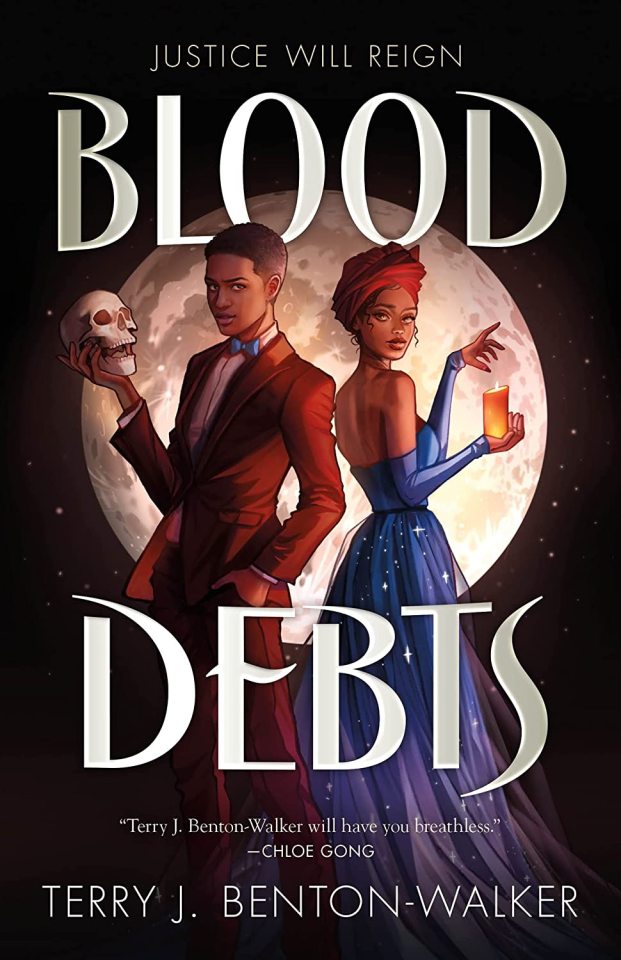

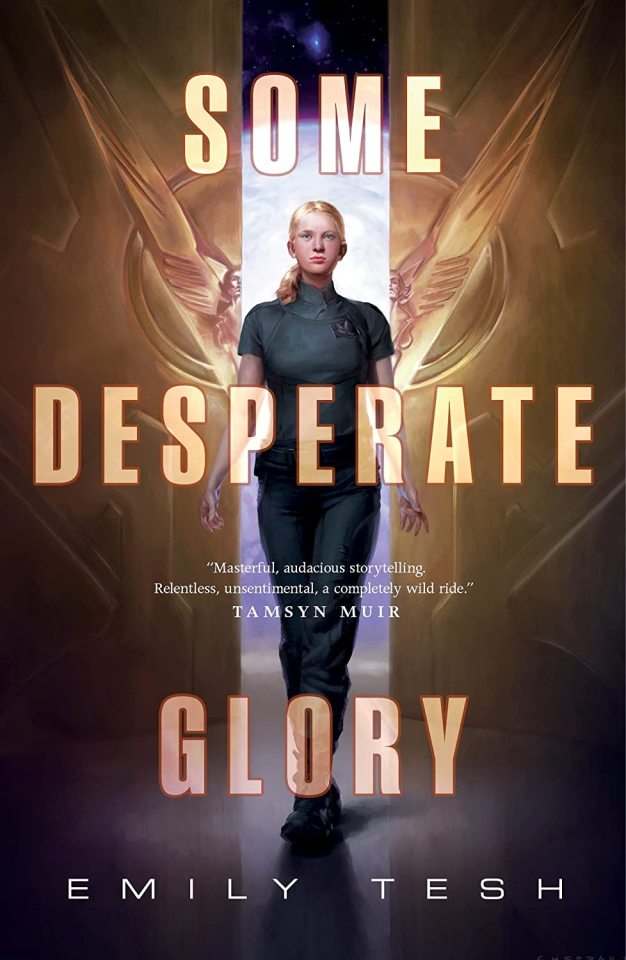

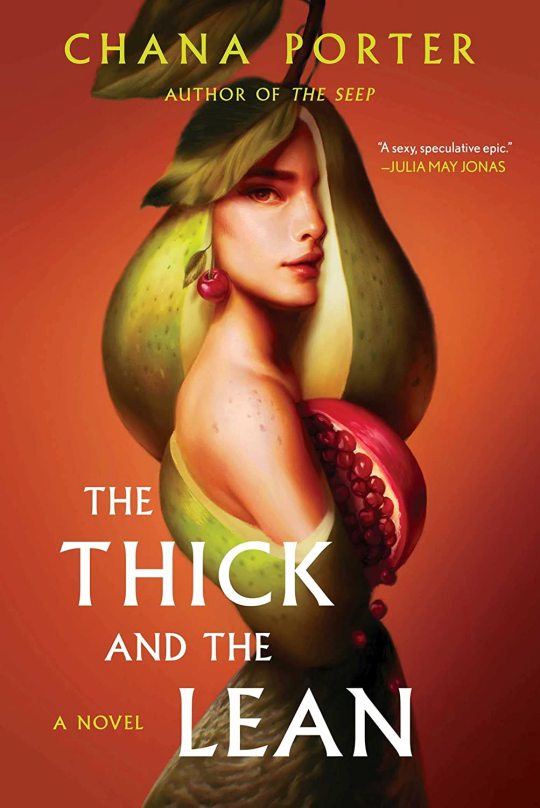


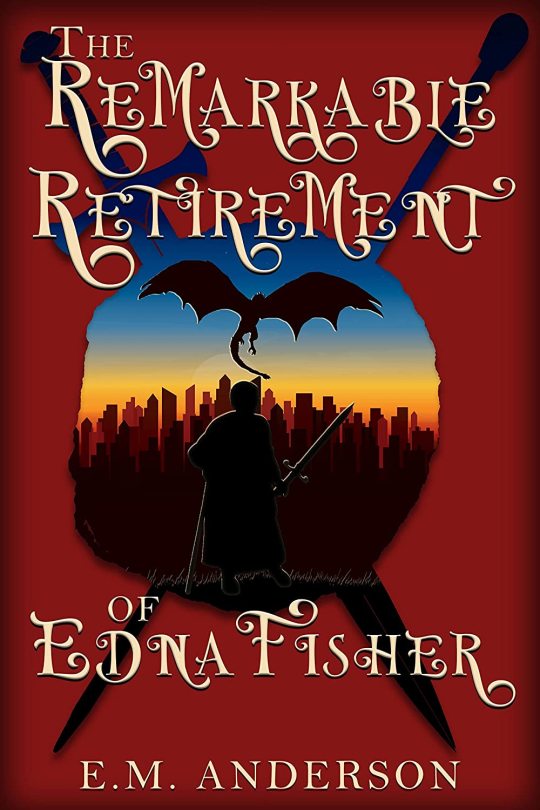

Alright I know I just posted the March one, but how about some April books! It seems like another good month! There are a lot of interesting things coming out, though Some Desperate Glory is probs what I am most exicited about because I have really enjoyed what I have read from Emily Tesh so far. As always there are a lot of other books that I didn't have room for, and I have a different set of lists for Sequels so they aren't on here. Is there anything you are exicted about coming out this month that I missed or haven't heard about yet?
Blood Debts by Terry J. Benton-Walker (4th)
Spell Bound by F.T. Lukens (4th)
Some Desperate Glory by Emily Tesh (11th)
If I See You Again Tomorrow by Robbie Couch (18th)
The Thick and the Lean by Chana Porter (18th)
The Fiancee Farce by Alexandria Bellefleur (18th)
The Remarkable Retirement of Edna Fisher by E.M. Anderson (21st)
The Skin and It's Girl by Sarah Cypher (25th)
Robin and Her Misfits by Kelly Ann Jacobson (25th)
#upcoming books#2023 books#booklr#upcoming releases#2023 book releases#queer sff#queer books#blood debts#terry j benton-walker#spell bound#f.t. lukens#Some desperate glory#emily tesh#lgbtq books#if I see you again tomorrow#robbie couch#the thick and the lean#chana porter#the fiancee farce#alexandria bellefleur#the skin and its girl#sarah cypher#robin and her misfits#kelly ann jacobson#ya books
19 notes
·
View notes
Text
Just read The Seep. I liked the premise of this book, and particularly the prologue and epilogue (the ‘how to host a dinner party’ parts). I felt as though some aspects could have been explored a lot more; the worldbuilding could have been in greater depth and there could have been more room for character growth. However, it was also joyously strange, a lot happier than most things I tend to read these days, and quite solarpunk, and I really liked the quote:
“Eventually, the conversation will flow to other things—typically, to The Past and How Great It Was, Even Though We Didn’t Know It at the Time, and The Future, that shimmering, mercurial beast, constantly breaking our hearts.”
8 notes
·
View notes
Text
The Divine Mother died for a cause. What’s the use of all our suffering?
-- The Thick and the Lean, by Chana Porter
2 notes
·
View notes
Text
read the thick and the lean by chana porter and don't imagine reiko as rina sawayama challenge: impossible
3 notes
·
View notes
Text
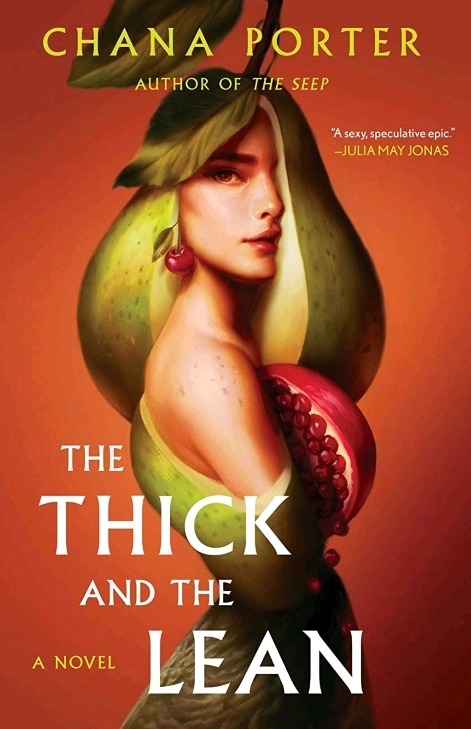
This is a phenomenal read that creates a whole new way to view sexual and eating habits! They are something that can be compared, and a truth about one can lead to a truth about the other. This spins both issues out in much different ways than how our world typically views them.
Sex is something that is a freedom in this book. An appetite to be sated. While the joy of food and flavor is viewed as the opposite. The two main characters go through different aspects of this. I feel like the ending does a good job of summing this wild story up.
Out April 18, 2023!
#book#bookish#books#bookworm#book review#currently reading#read#bookblogger#reading#dystopia#fiction books#fantasy#The Thick and the Lean#Chana Porter#netgalley
2 notes
·
View notes
Text
The Seep by Chana Porter
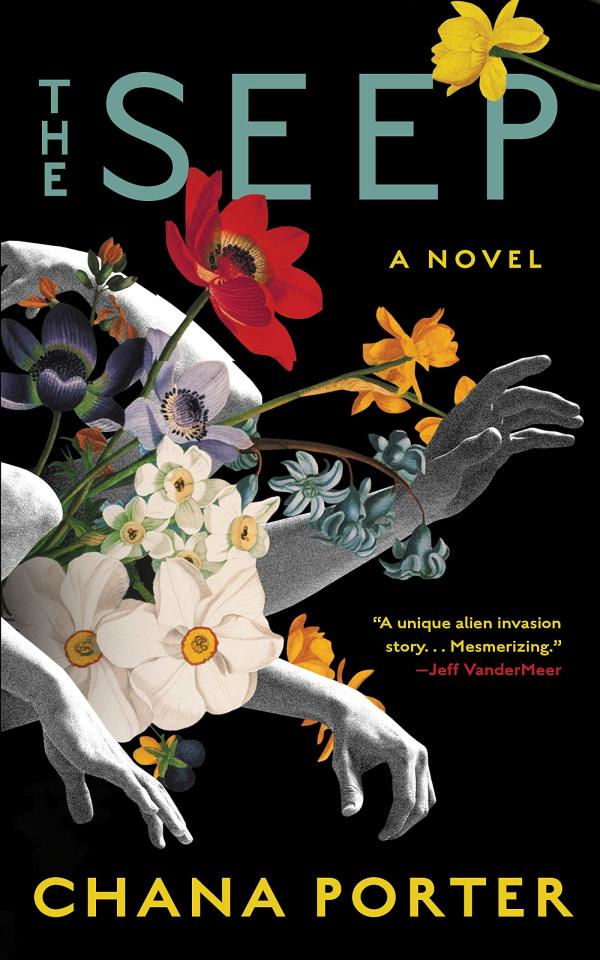
Today's sapphic book of the day is The Seep by Chana Porter!
Summary: "Trina Goldberg-Oneka is a trans woman whose life is irreversibly altered in the wake of a gentle—but nonetheless world-changing—invasion by an alien entity calling itself The Seep. Through The Seep, everything is connected. Capitalism falls, hierarchies and barriers are broken down; if something can be imagined, it is possible.
Trina and her wife, Deeba, live blissfully under The Seep’s utopian influence—until Deeba begins to imagine what it might be like to be reborn as a baby, which will give her the chance at an even better life. Using Seep-tech to make this dream a reality, Deeba moves on to a new existence, leaving Trina devastated.
Heartbroken and deep into an alcoholic binge, Trina chases after a young boy she encounters, embarking on an unexpected quest. In her attempt to save him from The Seep, she will confront not only one of its most avid devotees, but the terrifying void that Deeba has left behind."
#sapphic#trans#transgender#booklr#queer#wlw#books#lgbtq#book recommendations#book recs#queer lit#lgbt books#lgbtqia#lgbt#scifi#sci fi#science fiction#speculative fiction#the seep#chana porter
14 notes
·
View notes
Text

vote yes if you have finished the entire book.
vote no if you have not finished the entire book.
(faq · submit a book)
4 notes
·
View notes
Text
Finished my 30th book of the year!
Wish it had been good, and the platonic ideal of San Fransiscosity (derogatory), but still!
11 notes
·
View notes
Text

Title: The Thick and The Lean
Author: Chana Porter
Genre/s: science fiction
Content/Trigger Warning/s: cults, eating disorders, sexual harassment, death, murder, earthquakes, racism
Summary (from author's page): In the quaint religious town of Seagate, abstaining from food brings one closer to God.
But Beatrice Bolano is hungry. She craves the forbidden: butter, flambé, marzipan. As Seagate takes increasingly extreme measures to regulate every calorie its citizens consume, Beatrice must make a choice: give up her secret passion for cooking or leave the only community she has known.
Elsewhere, Reiko Rimando has left her modest roots for a college tech scholarship in the big city. A flawless student, she is set up for success…until her school pulls her funding, leaving her to face either a mountain of debt or a humiliating return home. But Reiko is done being at the mercy of the system. She forges a third path—outside of the law.
With the guidance of a mysterious cookbook written by a kitchen maid centuries ago, Beatrice and Reiko each grasp for a life of freedom—something more easily imagined than achieved in a world dominated by catastrophic corporate greed.
Buy Here: https://bookshop.org/p/books/the-thick-and-the-lean-chana-porter/18667830
Spoiler-Free Review: Another book that took me a while to write a review on because I had to turn over things in my head before I could get down on paper what I was thinking. Been a while since I read any of these books in succession, and I think I need more of them in my life.
Anyway: I think most people who've written reviews about this book have already mentioned how it tackles the relationship with food, and how it relates to diet culture, and how diet culture as been the basis for cultish behavior/actual cults (I like this episode from Cult Podcast about Jillian Epperly and Jilly Juice - just note that this podcast might slant more humorous than some people like while dealing with serious subject matter, and this particular episode makes liberal references to bodily functions that some people might not want to hear about in certain situations). This novel just takes it to an extreme, with an extra layer of factory town on top. Which, when you really think about it, a factory town isn't really all that different from a cult situation now, is it?
And while all that's definitely important to think about, and the book certainly puts it front and center, I was more drawn to the parallels between the two main characters, Beatrice and Reiko: specifically, how Beatrice seems to "ascend" in terms of the trajectory of her story and development, whereas Reiko's is a "descent".
It doesn't seem that way at first though. In fact, at first it feels like the opposite: Beatrice "descends", while Reiko "ascends", so to speak, when comparing the trajectories of their stories in the first third of the novel. But as the novel goes on, it becomes clear that while Beatrice's story is a "descent" in terms of her material circumstances, it is a clear "ascent" in terms of her inner life and her ability to be true to herself and the world. On the flipside, Reiko's story appears to be an "ascent" in terms of her material circumstances, but is a clear "descent" in terms of her inner life and her ability to be truthful to herself and the world.
I suspect that I derived this metaphor from the way the way the City is portrayed in the novel: as one becomes wealthier, one "ascends" through the layers of society until one lives in the air itself, like an angel whose feet never touch the ground. But that kind of ascent is not necessarily good for one's soul; sometimes you have to touch grass in order to be a better person, instead of being so detached from the world that you forget it - and everyone else living in it - exists, and become absorbed entirely in nothing but your own personal concerns.
While these comparisons are of course interesting, and highlight different aspects of the world in the novel (as well as similar ideas that are happening in the real world right now), I found myself wishing that Reiko's story had been given the space of an entirely different book. Not to say that it's badly-told, or that it's a bad story; I just think that it doesn't rest as comfortably alongside Beatrice's story as I would like. While the themes and concerns of their stories do have some overlaps, I truly feel like Reiko's story is a completely separate beast from Beatrice's, and deserves to have its own room to breathe, as it were. Maybe this book could have been done as a pair of matched novellas, as opposed to one whole novel? This is just my own thought of course, since the author knows what they want to do with their book and it's not my place to tell them how to execute the story they want to tell.
That being said: I liked the uncertainty of their respective endings. The novel talks a lot about change and how to bring it about: whether that's change in oneself, or change in the world around oneself, and the uncertain endings for both Beatrice and Reiko are a reminder of how such change never really comes into being unless one continues to do the work. It's also a reminder that though stories end, life continues: it doesn't stop moving just because the storyteller decided to write "The End" at the bottom of the page. It's an important reminder, I think, to people who are on the front lines of initiating and creating change in the world: sometimes the ending of one story is just the beginning of another, and with that comes all the potential for change and uncertainty as one would expect from the start of any story.
So overall, this was a great read: the language in particular is lovely, especially where it focuses on food descriptions. However, I think it bites off a bit more than it can chew. Beatrice’s story is great, and Reiko’s story is great, and the idea of using The Kitchen Girl to both world-build and connect their two disparate stories is pretty damn cool, but I rather think their stories are distinct enough that they need to be told entirely separately. I say this specifically in reference to Reiko's story, which i think could have been more justice if it just had a bit more room to breathe. The attempt to encompass so many themes - diet culture as religion; the sublime experience of the senses through food; being true oneself despite the potential consequences; sacrificing oneself in order to achieve stability and security in life; the effects of climate change; classism; racism; colonialism - this book tries to get them all in there and doesn’t quite let all those themes really breathe. I rather admire the attempt, but again I wish each of those ideas had been given a bit more room to really expand.
Rating: four plums
1 note
·
View note
Text
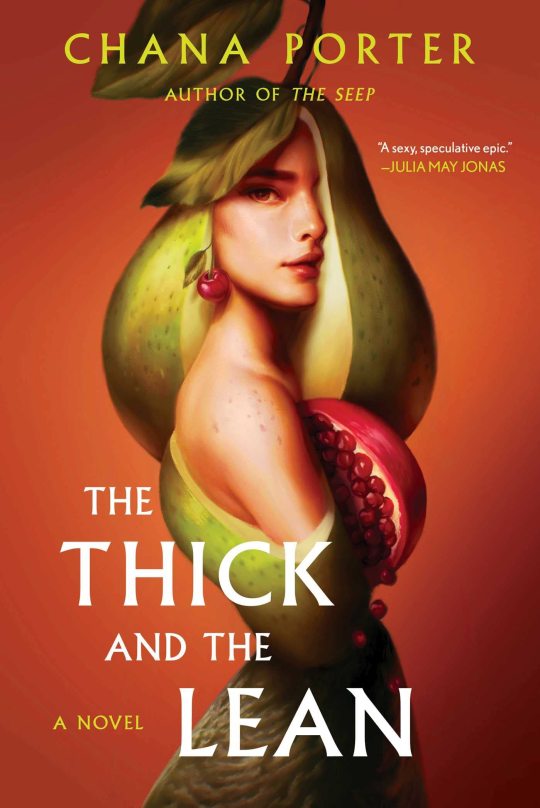
Title: The Thick and the Lean | Author: Chana Porter | Publisher: Gallery / Saga Press (2023)
0 notes